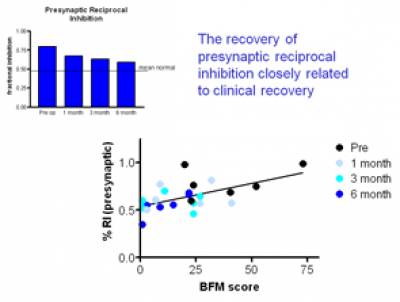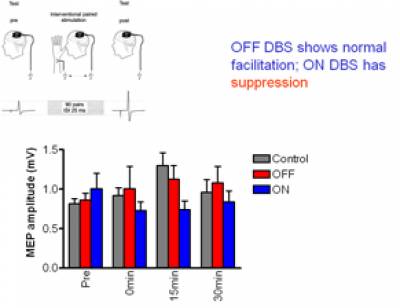Compensation and Normalisation in basal ganglia surgery.
Lab Head: Professor John Rothwell
Neurosurgical approaches (pallidotomy, deep brain stimulation and foetal nigral transplantation) to the treatment of basal ganglia movement disorders are of great topical interest since they provide a method for treating patients at a stage when drug therapy has become very difficult to control. Precisely how these interventions produce functional improvement is not clear, it could be because they normalise the function of diseased parts, or because they allow other healthy parts of the brain to compensate better for the effects of the disease. We hope to answer this question by using electrophysiological stimulating and recording methods coupled with careful assessment of the precise nature of the improvement.
We are following neurophysiological changes in patients with generalised dystonia after implantation of DBS bilaterally into the GPe. These individuals gradually gain clinical improvement over 3-6 months postoperatively, and during that period their motor physiology returns towards normal, as shown in the graph of the recovery of spinal reciprocal inhibition above. In addition, there are effects on the plasticity of neural circuits in the motor cortex that can be probed by transcranial magnetic stimulation.


 Close
Close

